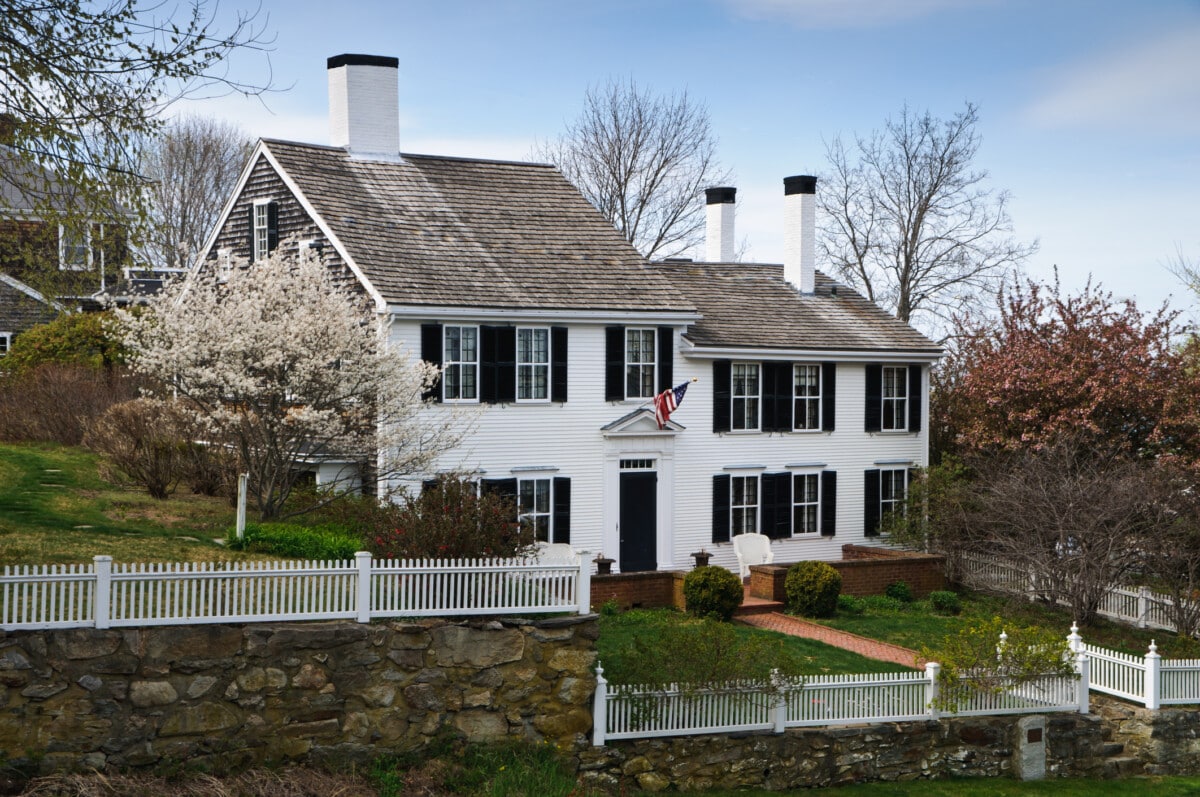Is Plymouth, MA a Good Place to Live? 10 Pros and Cons to Consider

Welcome to Plymouth, Massachusetts, where coastal charm and vibrant culture combine to create an exceptional living experience. Living in Plymouth is like stepping into a postcard, with picturesque beaches, friendly neighborhoods, and a welcoming atmosphere that will make you feel right at home. This town has opportunities for outdoor adventures, historical exploration, and engaging community events. That said, there are a few drawbacks to consider before making the move to Plymouth. In this Redfin article, we’ll explore ten pros and cons of living in Plymouth, MA so you can make the most informed decision about your next move. So before you start your search for apartments for rent in Plymouth, MA, or homes for sale, keep reading and learn what this charming coastal city is all about.

Pros of living in Plymouth, MA
1. Rich historical significance
Plymouth holds a special place in American history as the site where the Pilgrims first settled in 1620, marking the beginning of the New England colonies. From the iconic Plymouth Rock to the remarkable Plimoth Plantation, you’ll have the opportunity to immerse yourself in the fascinating story of the Pilgrims and their journey.
2. Convenient location to Cape Cod and Boston
One of the best parts of living in Plymouth is its incredibly convenient location that offers easy access to Cape Cod and Boston. You’ll be able to spend weekends exploring the charming towns, pristine beaches, and picturesque lighthouses of Cape Cod, just about 40 minutes away. Whether you’re indulging in fresh seafood in Provincetown, catching breathtaking sunsets in Chatham, or exploring the quaint shops of Hyannis, Cape Cod makes for a great getaway. But that’s not all—Plymouth’s proximity to Boston opens up plenty of opportunities. In just an hour’s drive, you can immerse yourself in the bustling city’s rich history, diverse culture, and countless attractions.

3. Beautiful coastal scenery
Nestled along the pristine shores of Cape Cod Bay, Plymouth boasts a natural beauty that will leave you in awe. Try exploring the scenic trails of Morton Park, or bask in the sun at White Horse Beach; the coastal charm of Plymouth will undoubtedly steal your heart. You may even encounter wildlife, from watching whales breach the surface to spotting adorable seals lounging on the rocks.
4. Amazing fresh seafood and local cuisine
As a coastal town, Plymouth offers an abundance of fresh seafood that is a true delight for seafood enthusiasts. Indulge in succulent lobster rolls brimming with tender chunks of lobster meat, or savor the delicate flavors of freshly caught scallops and oysters. The seafood options are endless, from the flaky perfection of locally caught cod to the savory goodness of clam chowder. And let’s not forget about the vibrant farm-to-table movement that thrives in Plymouth, where you can savor the freshest produce, artisanal cheeses, and homemade jams at local farmers’ markets and restaurants.

5. Quaint and charming New England architecture
As you stroll through the town’s picturesque streets, you’ll be greeted by a delightful array of historic homes adorned with classic shingled roofs, graceful white picket fences, and inviting front porches. Cape Cod, Colonial, and Victorian are just a few Massachusetts-style homes. The architectural beauty of Plymouth extends beyond residential areas, as the town’s downtown area showcases stunning examples of historic buildings, such as the 1749 Courthouse and the charming shops lining the cobblestone streets. Every corner reveals a story and a piece of New England’s rich heritage.
Cons of living in Plymouth, MA
1. Higher home prices
It’s important to consider that living in Plymouth, Massachusetts, comes with higher home prices than many other areas. The desirable location, charming coastal beauty, and historical significance of Plymouth contribute to the increased costs. The median sale price is $598,752, higher than the national average of $407,415. Renting in Plymouth is just as expensive, where tenants can expect to pay an average of $3,265 for a two-bedroom apartment. However, these rent prices seem low compared to larger cities like Boston, where the average two-bedroom apartment is $5,222.

2. Seasonal tourism and potential crowding
Residing in Plymouth comes with the occasional drawback of seasonal tourism and potential crowding. Plymouth is renowned for its rich historical significance and stunning coastal beauty, and attracts many visitors during the peak tourist season in the summer and fall. While this influx of tourists brings energy and vitality to the town, it can also lead to crowded streets, busy attractions, and increased traffic. Famous landmarks like Plymouth Rock and the Mayflower II may experience higher foot traffic during these times, so plan accordingly.
3. Potential vulnerability to coastal storms and flooding
Due to its location along the coast, Plymouth is exposed to the impact of severe weather events, including powerful storms and high tides that can lead to coastal flooding. These natural occurrences have the potential to disrupt daily life, cause property damage, and pose safety risks. While measures are taken to mitigate the effects of such events, including coastal management and infrastructure improvements, the possibility of coastal storms and flooding remains a consideration for residents. It is essential for individuals considering living in Plymouth to be aware of these risks and take necessary precautions, such as having flood insurance and staying informed about emergency preparedness measures.

4. Harsh winter weather
As with many New England towns, Plymouth is no stranger to snowstorms, freezing temperatures, and winter storms that can impact daily life. The colder months may require extra time and effort spent on snow removal, navigating icy roads, and bundling up to face the chilly temperatures. Snow accumulation can lead to temporary inconveniences, such as delayed or disrupted transportation services, so you may need to head out earlier than planned when you have somewhere to be.
5. Limited job opportunities
Another potential drawback of living in Plymouth is the limited job opportunities compared to larger cities. While the town offers a range of employment options, it may have a different breadth and diversity of industries and career paths than larger urban centers. Jobseekers in specialized fields or seeking specific industries may find that they need to commute to nearby cities for suitable employment opportunities.
Is Plymouth, MA a good place to live? Final thoughts
With its rich historical significance, stunning coastal scenery, delicious cuisine, and beautiful architecture, Plymouth offers a charming and engaging living experience. However, it’s essential to consider the higher housing costs, seasonal tourism, and harsh winters, to name a few. By weighing the pros and cons and considering your specific circumstances, you should be able to decide whether Plymouth aligns with your lifestyle and priorities.
The post Is Plymouth, MA a Good Place to Live? 10 Pros and Cons to Consider appeared first on Redfin | Real Estate Tips for Home Buying, Selling & More.
